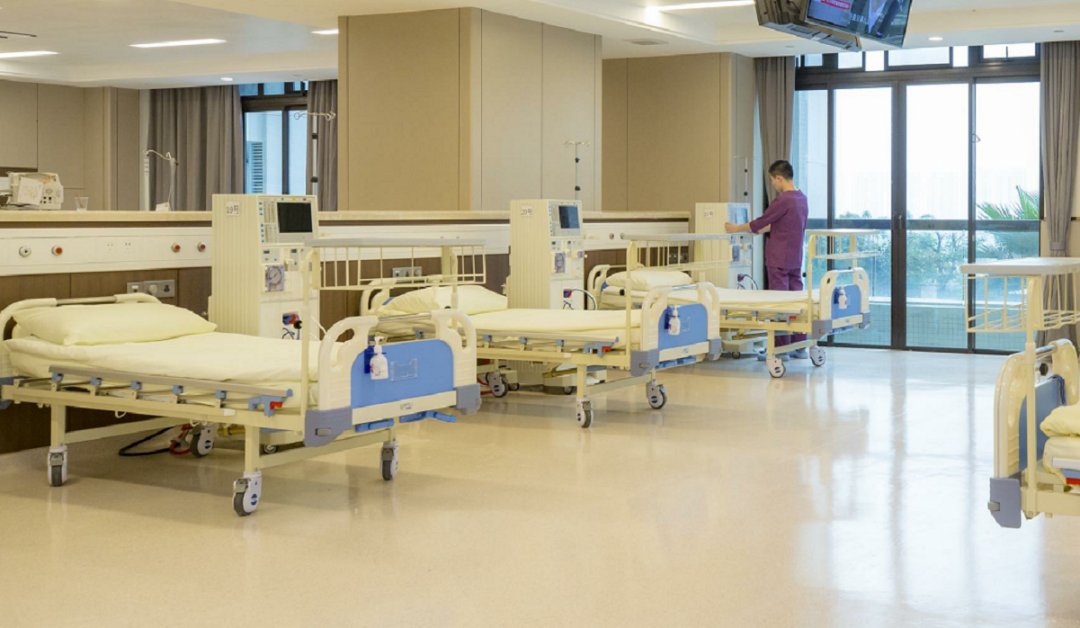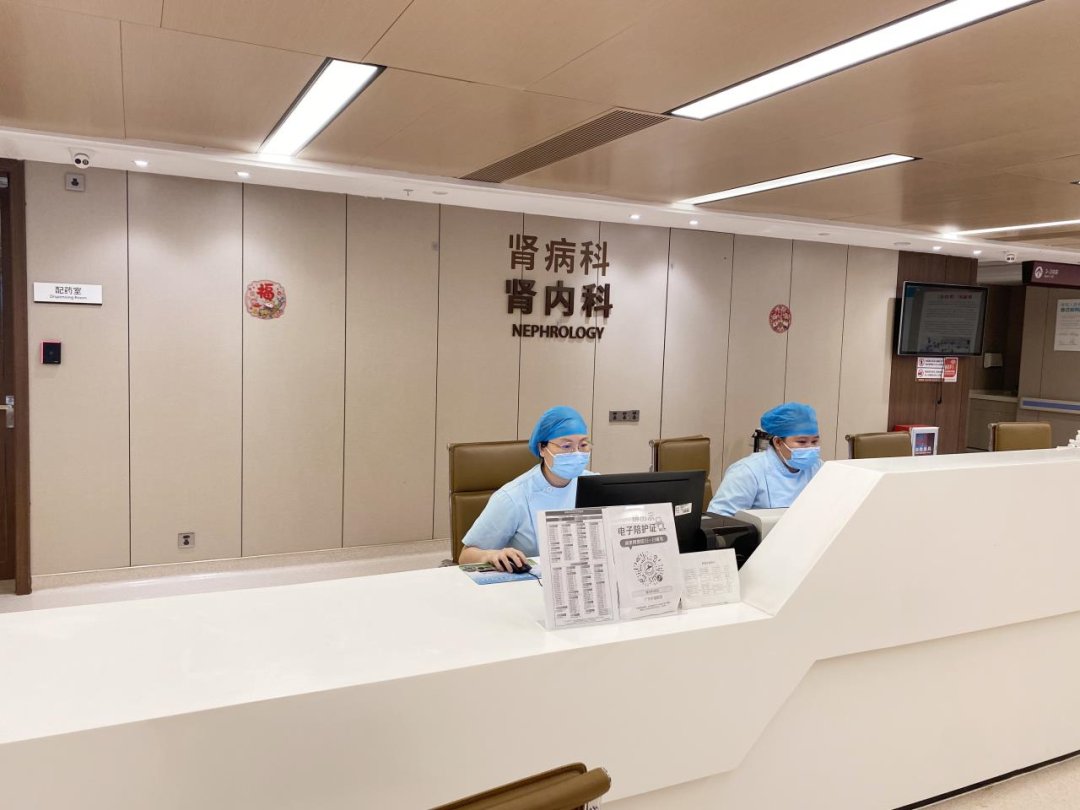Speaking of “a meal artifact”,
Crispy mustard must have a place.
A few days ago,
Li Bo who lives in Zhongcun, Panyu
Because of the heat and lack of appetite,
Eating a plate of moldy mustard,
I didn’t expect it to happen
A series of symptoms such as acute renal failure, heart failure, intestinal obstruction, etc.
Life is on the line.
Finally,
Li Bo was treated in the Nephrology Department for a month before he turned the corner.

Guangdong Clifford Hospital. (Data map) Photo courtesy of the correspondent
Moldy mustard, Abo had diarrhea a dozen times a day
On June 15, 71-year-old Li Bo came to the emergency department of Guangdong Clifford Hospital with a face full of pain. He had been suffering from severe diarrhea for several days, and had no urination and breathing difficulties for 3 days. After examination, Li Bo’s many indicators failed, and his serum creatinine was as high as 537umol/L, 5 times higher than the normal value, indicating acute renal failure, combined with heart failure, electrolyte imbalance and acid-base imbalance, which were at stake. Li Bo was immediately admitted to the Nephrology Department for rescue treatment.
Chen Yuan, deputy director of the Nephrology Department of the hospital, and Li Bing, the attending physician, participated in the emergency treatment and arranged emergency intubation and hemodialysis for Li Bo to temporarily replace the kidney function. The doctor carefully asked about the onset of the disease and learned that five days ago, due to the unbearable heat, Li Bo felt that he had no appetite. He happened to have leftover mustard at home, so he used mustard bibimbap to eat.
Why is mustard a deadly “killer”?
After understanding, it turned out that the mustard that Li Bo ate had been opened for many days, and it had deteriorated and became moldy. However, Li Bo has always been diligent and thrifty. When he found that the mustard was moldy, he felt that it was too wasteful to throw it away, so he removed the moldy part and ate the rest directly with the meal.
Unexpectedly, not long after eating the mustard, Li Bo began to have abdominal pain, bloating, nausea and discomfort, unable to eat, and had watery stools more than 10 times a day… In just a few days, Li Bo seemed to have changed his eyes. Deep depression, sallow complexion, fatigue and fatigue, he went to a nearby hospital for treatment for several days and his condition did not improve, so he hurried to Guangdong Clifford Hospital for treatment.
After 1 month of rescue, Abo walked out of the “ghost gate”
Through repeated fecal microbiological analysis and culture, doctors finally found the real culprit – Salmonella typhimurium serotype. It is reported that this is the fungus that spoiled food is particularly prone to breed, and news of food poisoning caused by such bacteria is not uncommon every year. After the human body is infected by bacteria, symptoms such as fever, nausea, vomiting, abdominal pain, and watery diarrhea are prone to occur. In severe cases, rapid dehydration may lead to shock, renal failure and even death.
The fecal examination also found hookworms, fungi, etc., which shows that Li Bo’s daily food hygiene is really worrying. In order to save his life and expel toxins from his body as much as possible, the Nephrology Department performed hemodialysis for Li Bo three times. Chen Yuan and Li Bing used antibiotics against Salmonella, combined with antifungal treatment and drug deworming treatment. The abdominal pain and diarrhea symptoms that plagued Li Bo for more than 10 days were relieved. With the gradual recovery of kidney function and the continuous increase of urine output, Li Bo finally got rid of dialysis. During the period, because Li Bo’s intestinal inflammation was very serious, intestinal edema caused intestinal obstruction. After the general surgery consultation, Li Bo was treated with enema, gastrointestinal decompression, acupuncture and traditional Chinese medicine to promote the recovery of his intestinal function. After a series of treatments, Li Bo finally turned the corner and his condition gradually improved.
On July 14, Li Bo was finally discharged from the hospital after a month of treatment. He was very regretful: “I didn’t expect to eat a plate of moldy mustard and let me walk through the ‘Ghost Gate’.”

Department of Nephrology, Guangdong Clifford Hospital. (Data map) Photo courtesy of the correspondent
Doctor reminder:
No mold ≠ no mold
Frugality is a good thing, but like Li Bo, he finds that the food is broken and he is not willing to throw it away, or thinks that the moldy part can still be eaten, which is often more than the gain. Chen Yuan reminded that expired and spoiled food is easy to breed Salmonella, which can easily lead to food poisoning. “Salmonella can survive for months even in food stored in the refrigerator.” Also, just because you can’t see mold doesn’t mean you don’t have mold. Chen Yuan said that the moldy food visible to the naked eye is actually the part of the mold mycelium that has fully developed and formed, and there are many molds that are invisible to the naked eye. “These toxins may cause symptoms of poisoning and even cause multiple organ failure. Therefore, the safest and most reliable way to deal with spoiled food is to throw it all away. Don’t eat it with savings or luck. /p>
Beware of intestinal diseases in summer, these 4 points should be done well
Summer is the season when bacteria and viruses are easy to breed. If you are not careful, it may cause intestinal diseases and food poisoning. Chen Yuan reminds everyone to pay attention to the following points in daily diet:
1. Purchase quarantine-qualified poultry, livestock and egg foods, and use safe drinking water and food raw materials to reduce the possibility of bacteria and germs in food.
2. Store food properly and reject leftovers. Cooked food should not be stored for more than 2 hours at room temperature, especially in high temperature and high humidity weather; leftovers are recommended to be stored in refrigeration (2°C~8°C) and eaten as soon as possible to prevent Salmonella from multiplying.
3. Many fungi, such as Salmonella, can be destroyed by boiling water at 100°C, so the food should be cooked thoroughly (especially poultry meat and eggs).
4. Pay attention to kitchen hygiene, use and store raw and cooked cutting boards and knives separately to avoid cross-contamination.
Information Times reporter Zhang Man correspondent Pan Zengli